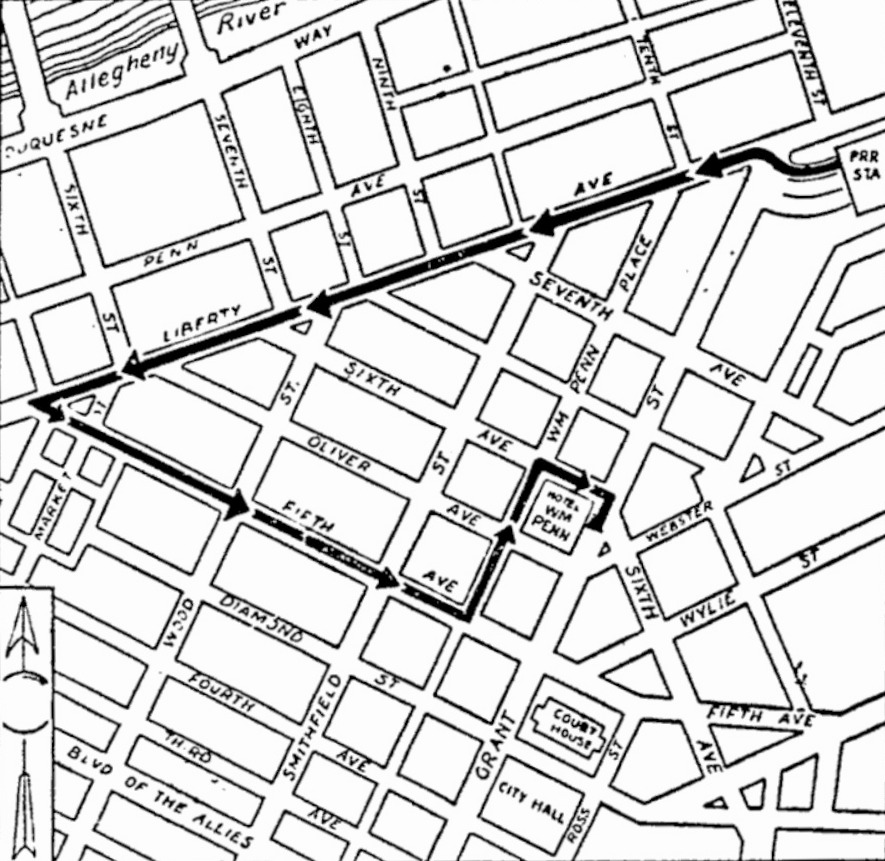
Editorial: How the CIO plans to get out the vote
The CIO Political Action Committee is likely to become the biggest issue in the presidential election.
To some, it is a subversive movement organized by a smart coalition of Communists, labor bosses, intellectuals and leftists in general to gain control of the government and make the state supreme under their dictatorship.
To others, it is a crusade to educate voters to preserve democracy – that’s what the CIO leaders call it.
Without debating what it is, let’s at least look at how it proposes to operate – what makes it tick. For it is a real, concrete movement, smartly led and financed with millions of dollars. And if it is to be a force in American politics, we ought to understand it – and if it is to be kept from becoming the dominating force, then we first have to learn how it operates.
For that reason, The Press today starts publication of a series of five stories telling just what the PAC is, what it proposes to do and how it proposes to do it. The stories are based on publications and statements of its leaders and on the textbooks which it is sending out by hundreds of thousands to train its followers in the details of political organization.
Its basic principle is simple – first get ‘em registered, and then get out the vote. Its textbooks center around that theme.
“A big vote is always a good vote,” says the PAC. So, it proceeds on the job of getting out a big vote of its own people. Obviously the only practical policy of its opponents is to get out a big vote of their own people. In which case we may have a big vote of all the people.
If that happens, then the PAC will have accomplished a worthy purpose, regardless of how you view it.
“Unless you are registered you are as useless as a soldier without a gun,” says the PAC political textbook.
Its immediate job is to work through 14 regional officers and thousands upon thousands of shop stewards and local committees and union headquarters to get its vote registered.
To do this, the PAC proposes a registration committee in each plant; complete file cards for each union member; checking of these cards against registration lists; contact with each non-registered worker and his family to get them registered; assistance in making registration convenient or in helping workers to overcome election red tape, and a huge whoop-it-up campaign to make registration popular through posters, leaflets, buttons, etc.
To accomplish these objectives, political textbooks have been issued by the PAC and by various CIO unions.
“The secret of political success today lies largely in doorbell ringing,” says the Guide to Political Action.
“Talk to friends,” it urges, especially pointing out how shop stewards and members of grievance committees are in a favorable position.
“Make a list of neighbors and friends” and then talk to them to see that they are registered. These neighborhood lists are to form the foundation for block and precinct political clubs.
Each precinct is to have a committee and a captain. The PAC textbook says:
A good captain is eager to help solve the problem of his neighbors… Such captains build precinct organizations which become centers of social as well as political activity in the neighborhood. By such work, the precinct captain and his assistants are able to mobilize the people of their neighborhood when a political campaign is launched.
“Whenever possible, the precinct captains should be neighbors,” it is emphasized, and the particular value of women as neighborhood organizers is pointed out.
All of which is very practical, irrefutable and effective politics.
If the CIO and its left-wing associates are to be kept from taking over the government, then the same sort of grassroots organizing will be required to defeat them.
For it isn’t true that a big vote is always a good vote – not when it is a big vote only of those who organized and carried through the essentials of getting one particular group of voters to the polls.

